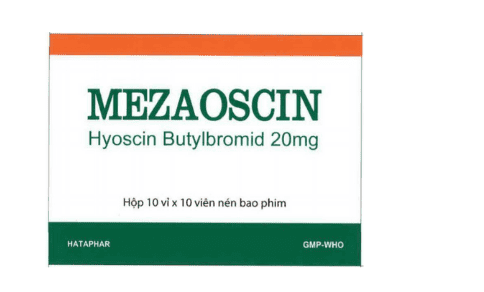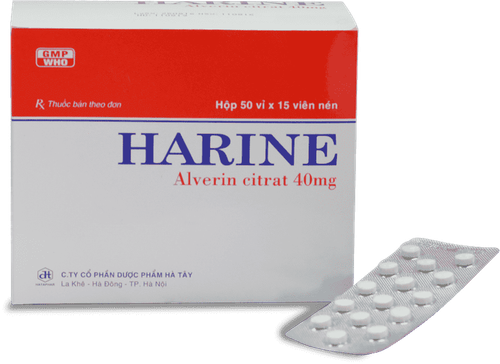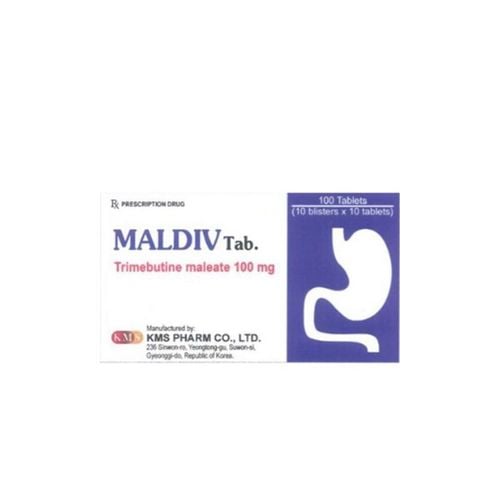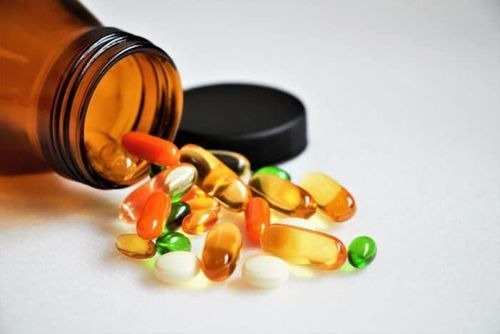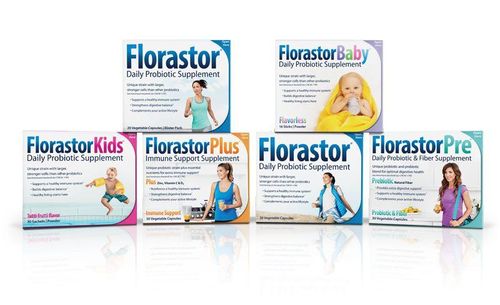This is an automatically translated article.
The body is home to about 40 trillion bacteria, most of which are in the gut and do not cause any health problems. In fact, scientists have begun to realize that some of these bacteria are essential to physical health. What's more, recent studies have found these bacteria may also benefit brain and mental health.1. What are probiotics?
Probiotics are living organisms, usually bacteria. When enough of them are consumed, they provide health benefits. Probiotics are organisms derived from "Evolutionary Life", the word "probiotic" is derived from the Latin words "pro" meaning promoter and "biotic": meaning the living.It is important for a species of bacteria to be called “Probiotics” that it has a lot of scientific evidence behind it to be able to demonstrate some of its health benefits.
Food and drug companies are starting to call some bacteria “probiotics” even when they have no scientific evidence to have health benefits. This led the European Food Safety Authority (ESA) to ban the word “probiotic” from all foods within the European Union.
However, there is a lot of new scientific evidence that some species of bacteria have real health benefits. Recent research suggests that probiotics may benefit people with certain conditions, including eczema, dermatitis, irritable bowel syndrome (IBS), elevated cholesterol levels, and liver disease.
Most probiotics belong to one of two types of bacteria, Lactobacillus and Bifidobacteria. There are many different species and strains of bacteria in these groups. And they can have different effects on the body.
2. The connection between the gut and the brain
The gut and brain are physically and chemically connected. Changes in the gut can affect the brain. The vagus nerve - is a large nerve in the central nervous system that sends signals between the gut and the brain. The brain and gut are also relayed through gut bacteria, which produce molecules that carry information to the brain.There are an estimated 30 trillion human cells and 40 trillion bacterial cells. This means that, according to the number of cells you have, the body will have more bacteria. The majority of these bacteria reside in the gut. Therefore, they will come into direct contact with the cells lining the intestines and can enter the body.
Many other bacteria live alongside gut bacteria including yeast and fungi. These bacteria are called the gut microbiota or the gut microbiome. Each of these bacteria can produce different substances that affect the brain. Bacteria include short-chain fatty acids, neurotransmitters, and amino acids.
Gut bacteria can also affect the brain and central nervous system by controlling inflammation and hormone production.
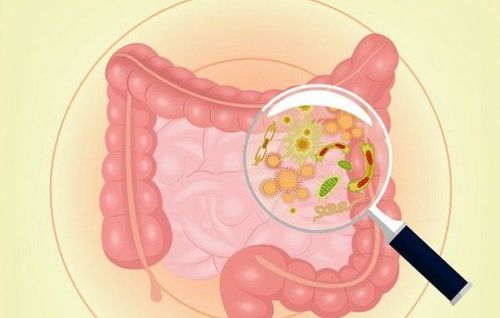
Vi khuẩn đường ruột cũng có thể tác động đến não và hệ thần kinh trung ương
3. Changes in gut microbiota and related diseases
Intestinal dysfunction refers to when the intestines and intestinal bacteria are in a diseased state. This may be due to the presence of pathogenic bacteria that can simultaneously lead to chronic inflammation.Researchers have identified intestinal dysfunction in people with conditions such as: obesity, heart disease, type 2 diabetes, ... A most recent study shows that certain preparations bio-probiotics can restore the microbiota to a healthy state and relieve the symptoms of diseases with various health conditions.
Not only that, but studies have also shown that people with mental health conditions also have an altered microbiome. However, it has not been clearly studied the conditions that cause this condition or if so it may be due to the influence of factors such as diet and lifestyle.
The gut and brain are connected and gut bacteria produce storm-promoting substances, so probiotics can be beneficial for brain and mental health. Probiotics with mental health benefits have been called psycho-biotics.
Several recent studies have investigated this relationship and have mainly been conducted in animals. However, a few have shown rather interesting results in humans.
4. Probiotics Can Improve Mental Health
Stress and anxiety are increasingly common, and depression is one of the major mental health problems globally. A number of mental health disorders, especially stress and anxiety, are linked to high blood levels of cortisol, the stress hormone.Several studies have looked at how probiotics affect people with clinically diagnosed depression. Research has shown that taking a mixture of three strains of Lactobacillus and Bifidobacteria for 8 weeks can significantly reduce symptoms of depression while also helping to reduce inflammation levels.
Several other studies have examined how probiotics impact depressive symptoms in undiagnosed individuals, including anxiety symptoms, depressive symptoms, mood swings, and depression. pain management, study stress ...

Một nghiên cứu đã cho thấy khi sử dụng hỗn hợp ba chủng của Lactobacillus và Bifidobacteria trong 8 tuần có thể giúp giảm đáng kể các triệu chứng trầm cảm
5. Probiotics May Reduce Irritable Bowel Syndrome
Irritable bowel syndrome (IBS) is directly related to colon function, but some researchers believe it to be a psychological disorder. Anxiety and depression are common in people with irritable bowel syndrome. At the same time, people with irritable bowel syndrome also tend to have altered microbiota.Many studies have shown that certain probiotics can be effective in reducing symptoms of irritable bowel syndrome, including pain and bloating. Therefore, these studies suggest that probiotics are associated with digestive health.
6. Probiotics Can Help Boost Your Mood
In people with or without mental health conditions, certain probiotics may help improve mood. One study was done by giving all participants a probiotic blend containing eight different strains of Lactobacillus and Bifidobacteria every day for 4 weeks.The results of the study showed that supplementing with these probiotics was effective in reducing participants' negative thoughts related to sad mood.
Another study also reported that consuming certain types of milk containing bacteria called Lactobacillus casei for 3 weeks resulted in improved mood in people who were in the worst mood before treatment.
Interestingly, these studies also showed that people taking a memory test after taking probiotics had lower scores. Therefore, more specific studies are needed in the future for scientific evidence to confirm these results.

việc bổ sung các probiotic này có tác dụng làm giảm suy nghĩ tiêu cực
7. Probiotics can help improve after traumatic brain injury
With a traumatic brain injury, the person may need to be in an intensive care unit. Here, doctors can help them eat and breathe through a tube. This can lead to a condition that increases the risk of infection. Furthermore, infection in people with traumatic brain injury can lead to more severe complications.A few recent studies have found that adding certain probiotics to foods that are administered to patients through a catheter can reduce the number of infections and shorten the duration of treatment. of patients in the intensive care unit. Probiotics may have these effects due to their benefits to the immune system.
8. Other Benefits of Probiotics for the Brain
Some studies have shown that probiotics may have other benefits for the brain.Specifically, the study conducted using a mixture of Bifidobacteria, Streptococcus, Lactobacillus and Lactococcus to healthy female study subjects who drank the mixture twice daily for 4 weeks. The results of the study showed that they affected the areas of the brain that control emotions and sensations.
Other studies have shown that probiotics specifically can reduce some symptoms of multiple sclerosis and schizophrenia , but more in-depth studies are needed to clarify these issues. this.

Một số nghiên cứu chỉ ra rằng, probiotic có thể làm giảm một số triệu chứng của tâm thần phân liệt
9. Use probiotics for the brain
Currently, there is not enough evidence to show that probiotics are definitely beneficial for the brain. This means that doctors cannot consider probiotics the best treatment for any brain-related disorder.Currently, there is only good evidence that probiotics have health benefits in other conditions including heart health, digestive disorders, eczema and inflammatory skin diseases.
As for the brain, there is only scientific evidence that shows a clear connection between gut and intestines. But more research is still needed to elucidate this relationship. This is another exciting area of public research that is growing rapidly.
Most people can get a healthy gut microbiome by following a healthy diet and lifestyle. Some foods may contain beneficial bacteria, including: probiotic yogurt, unpasteurized sauerkraut, kefir, kimchi,...
If needed, yeast can be added. Probiotics can help increase the beneficial bacteria in the gut. In general, taking probiotics is quite safe and causes few side effects.
Please dial HOTLINE for more information or register for an appointment HERE. Download MyVinmec app to make appointments faster and to manage your bookings easily.
Article referenced source: healthline.com



